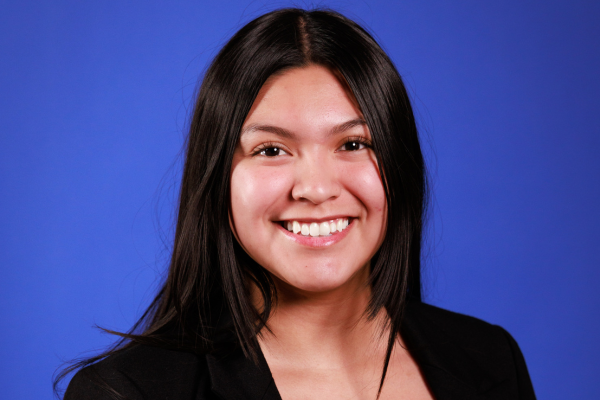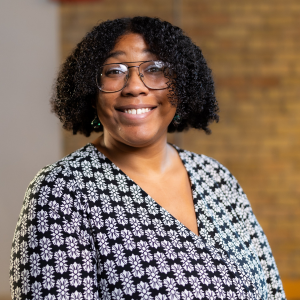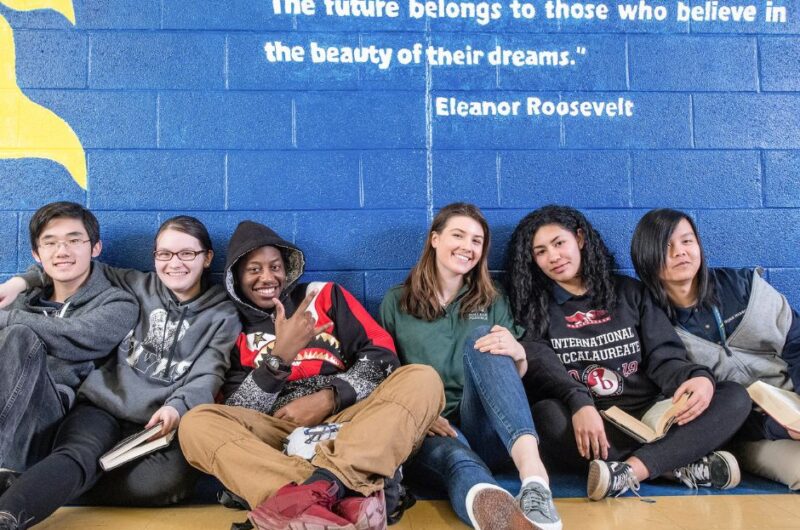 This great story is by Carlye Meisburger, who is currently serving her second term of service as a high school senior coach.
This great story is by Carlye Meisburger, who is currently serving her second term of service as a high school senior coach.
My first day as a College Possible senior coach was a week after schools were closed for COVID-19. So instead of showing up at Reynolds High School to meet my students in person, I sat at home, in my pajamas, and looked at their faces on Salesforce. I was incredibly unsure how to do this job that had looked and sounded so different when I had accepted the position in the beginning of March. How would I get these students to talk to me? What would I say? I was dealing with my own anxieties around COVID—my father is a health care worker and I’m a germaphobe—and I didn’t feel equipped to answer any questions they might have.
Nevertheless, I told myself that the most important thing was for these students to know that I was there for them. So I started reaching out to my students: texting, calling and emailing.
I got a few responses right away, but it was crickets from a majority of my students. I was disheartened. I knew that if I was at their high school I would see them in session, or in the hallways, or I could find them after school, or in one of their classes. But I wasn’t in their school. They weren’t in their school. No one was anywhere, because this was a global pandemic. So I cut myself some slack and I thought about the unique situation my students were in. They had just lost the coach they had known and loved for almost two years and now, in a time of global crisis, here I was, a stranger, trying to encourage them to complete verification, and talk to me about federal loans. Honestly, if I was in their shoes, I probably wouldn’t talk to me either.
So, I switched gears. When I got a student on the phone I would ask them all sorts of non-college related questions, try to learn about their interests and their families. Try to joke around a little if it felt right. I wanted them to know that I was a friend they could come to if they had questions or concerns, not some sort of authority figure who was going to try to make them work on things all the time. Obviously moving them forward towards college was important, but it wasn’t the most important thing. The most important thing was to show them that I was a support system that existed for them if they needed it.
And the effort I put into relationship building started to pay off. I remember the first two-hour long phone call I had with a student. We talked about her fears about school, and the nerves she was having about making such a big decision, and I shared the way that I felt when I was in her shoes. We talked about her passions, what she wanted from her college experience, and the tough role her family situation played in her decision. When I hung up I felt elated. I was doing my job, the thing that had felt so impossible when my students were just names and phone numbers on a list. It looked different from how I had imagined it, but in the end whether in a classroom or over the phone our job as coaches is to be there for our students. It’s just that simple.


